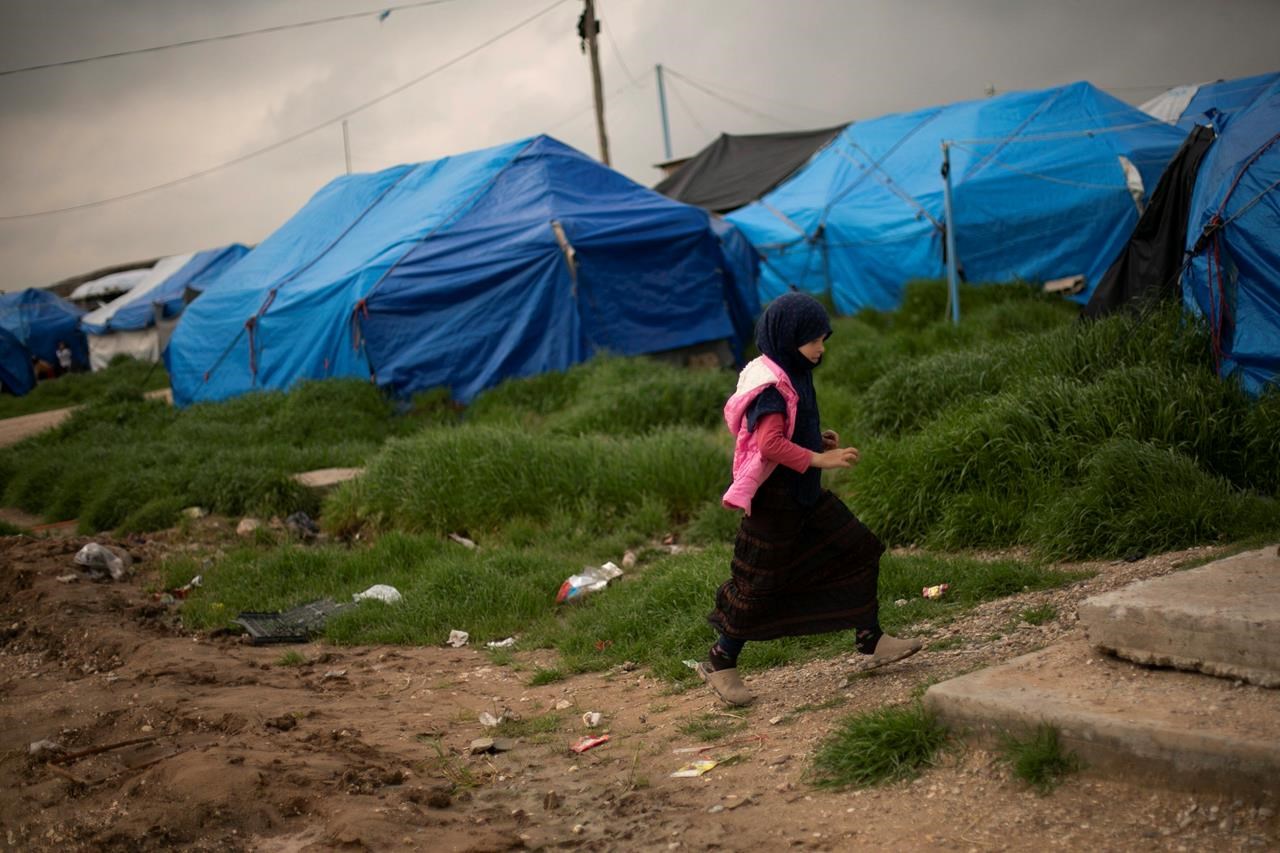Feds don’t ‘care if they die,’ says lawyer helping Canadian children held in Syria
Published April 22, 2024 at 8:10 am

Five Canadian children are languishing in a squalid detention camp in northeastern Syria after Ottawa denied their mothers permission to come to Canada, says a lawyer fighting in court on behalf of the families.
The development is the latest setback for Canadians among the many foreign nationals in ramshackle centres set up after the war-ravaged region was wrested from militant group Islamic State of Iraq and the Levant.
Lawyer Asiya Hirji said she sought temporary resident permits in February last year for two women with Canadian children in al-Roj camp, and heard last month they had been refused on security grounds.
One of the mothers has a seven-year-old boy and a five-year-old girl. The other mother has a nine-year-old girl and boys aged seven and five. Her oldest boy has a serious eye condition that requires medical treatment.
Neither mother is a Canadian citizen. The Canadian fathers of the children are no longer in the families’ lives.
Hirji, supervising lawyer at the University of Toronto law faculty’s legal clinic, said the women signed confessions under duress in Syria — information Canada should not rely on.
She is now pursuing a Federal Court review of Canada’s permit denial decision.
“In all security cases, they are very careful about what they are disclosing to the applicants,” she said. “And so it results in a very protracted process.”
A civil society delegation that visited Syrian prison camps last August called on Ottawa to provide immediate consular assistance to Canadian detainees and to swiftly repatriate all citizens wishing to return to Canada.
Delegation members, including Sen. Kim Pate and former Amnesty International Canada head Alex Neve, also urged the government to issue temporary permits to ensure that non-Canadian mothers and siblings of Canadian children can travel to Canada.
The delegation said Canada is complicit in a serious international human-rights failure through a policy of essentially warehousing thousands of foreign nationals, more than half of them children.
A recent Amnesty International report said men, women and children in the detention facilities endure inhumane conditions, in some cases including beatings, gender-based violence and torture.
An estimated 11,500 men, 14,500 women, and 30,000 children are held in at least 27 detention facilities and the al-Roj and al-Hol camps, the report said.
Hirji said she has repeatedly asked Global Affairs Canada to facilitate medical treatment for the five Canadian children she is trying to help, without success.
“I do not think that they care if they die,” Hirji said.
“It’s just heartwrenching that we’re just letting this happen. Kids don’t ask to be born. And so we have a responsibility to do what’s in the best interests of children.”
Non-Canadian parents of Canadian children may ask that their children be repatriated to Canada without them, and the federal government evaluates these requests on a case-by-case basis, said Global Affairs spokeswoman Charlotte MacLeod.
Canadian consular officials remain “actively engaged” with Syrian Kurdish authorities and international organizations operating in the region, as well as civil society groups for information on and assistance to Canadian citizens in the camps, MacLeod said.
“Due to privacy considerations, we cannot comment on specific cases or potential future actions.”
Hirji said that for the Canadian mothers, sending their children to Canada alone amounts to an impossible choice.
“Do they commit their children to a lifetime of emotional trauma? Or do they keep them with them and try to protect their emotional health at the detriment of their physical health?”
Canada has arranged for the repatriation of several other Canadian women and children from detention in Syria.
One Canadian woman from Quebec was denied help from Ottawa to return to Canada on security grounds, but has since managed to leave al-Roj camp. Her current whereabouts are unknown.
The woman’s lawyer, Lawrence Greenspon, says Ottawa has agreed to help her six young children, who are also citizens, come to Canada.
“I have very definite instructions from her to bring her children home as quickly as possible, and it looks like Global Affairs is moving in that direction,” Greenspon said.
A specialized clinic in Montreal is “ready to step in” to assist the children once they return, he added.
As for the mother, Greenspon said “the hope is that she will be able to find her way to a Canadian consulate and eventually find her way home.”
Greenspon is also one of the lawyers behind a court effort to secure the repatriation of four Canadian men being held in Syria.
In November, the Supreme Court of Canada declined to hear the men’s challenge of a Federal Court of Appeal ruling that said Ottawa is not obligated under the law to help them return.
The top court is being asked to reconsider its decision.
This report by The Canadian Press was first published April 22, 2024.
Jim Bronskill, The Canadian Press
insauga's Editorial Standards and Policies advertising





